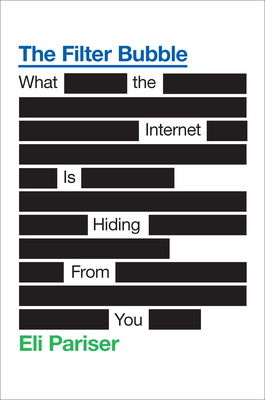 |
| Brain Pickings |
The reason that I found this idea to be so interesting is that it is basically serving to discourage civic engagement. By withholding new and different ideas from us, we only get to see one side of things. This would prevent people from ever questioning their opinions or even realizing that there are other opinions out there. Unless we are exposed to every side of any subject matter, we can not effectively speak and raise our voice on that matter. In order to be good citizens, it is our job to speak our opinion. However, the filter bubble idea makes you think whether or not you are actually speaking your own opinions. You may just be speaking what Google thinks is your opinion. The filter bubble has also been discussed with regard to Facebook in that Facebook has been criticized for allegedly filtering or personalizing what you see on your news feed.
All in all, I think this idea that Pariser has developed is something that you should keep in the back of your mind. I don't think anybody wants the internet to create our opinions and views for us and therefore, we have to make sure that this does not happen. What do you think about the filter bubble?
I have heard about this issue before with Google, and more controversially with Facebook. It is a hard topic to take a stance on because this can be both good and bad. If you only want to see updates from peoples Facebook pages that you frequent the most, this would be something beneficial to you, but it certainly restricts other information that may be interesting and makes you seem like more of a "facebook stalker."
ReplyDeleteI knew that Google catered some of their results based on your search history, but I never really thought about the implications before. In some ways I can see how this could be incredibly beneficial if you were searching for some place, and Google knew which results to show based off previous searches that indicated where you lived. However, I can also see the downside that you pointed out of not being made aware of opposing opinions and ideas, just on the basis of the fact that they don't totally agree with something you searched for one time. I would like if it was a feature that you could turn on and off based on what kind of information you were looking for.
ReplyDeleteThis just seems like a good marketing system. target people that want the product and only them. then show them more of what they already like. This just seems be an example of how advertisers are getting smarter, and now they have the technology to really target consumers.
ReplyDelete